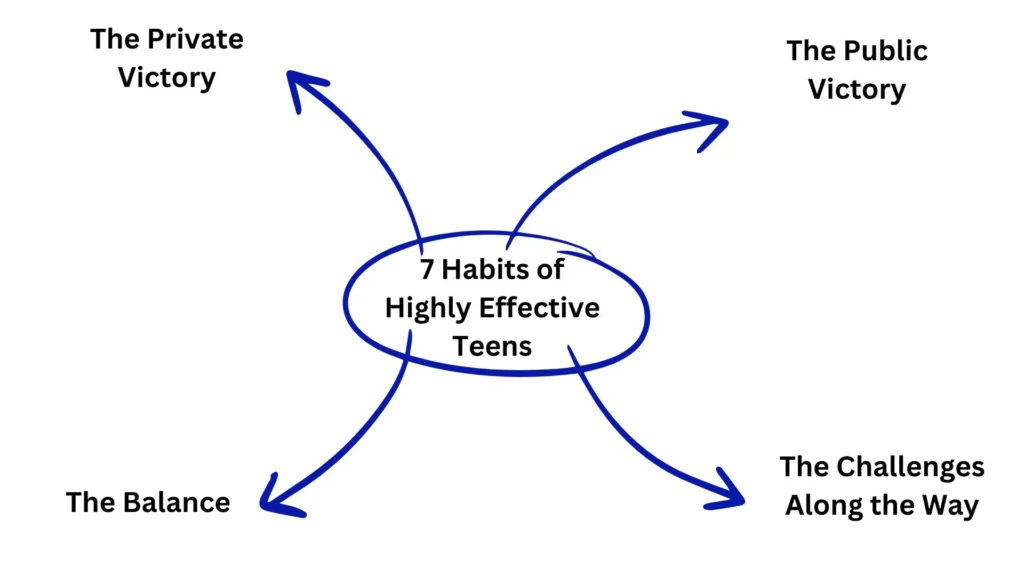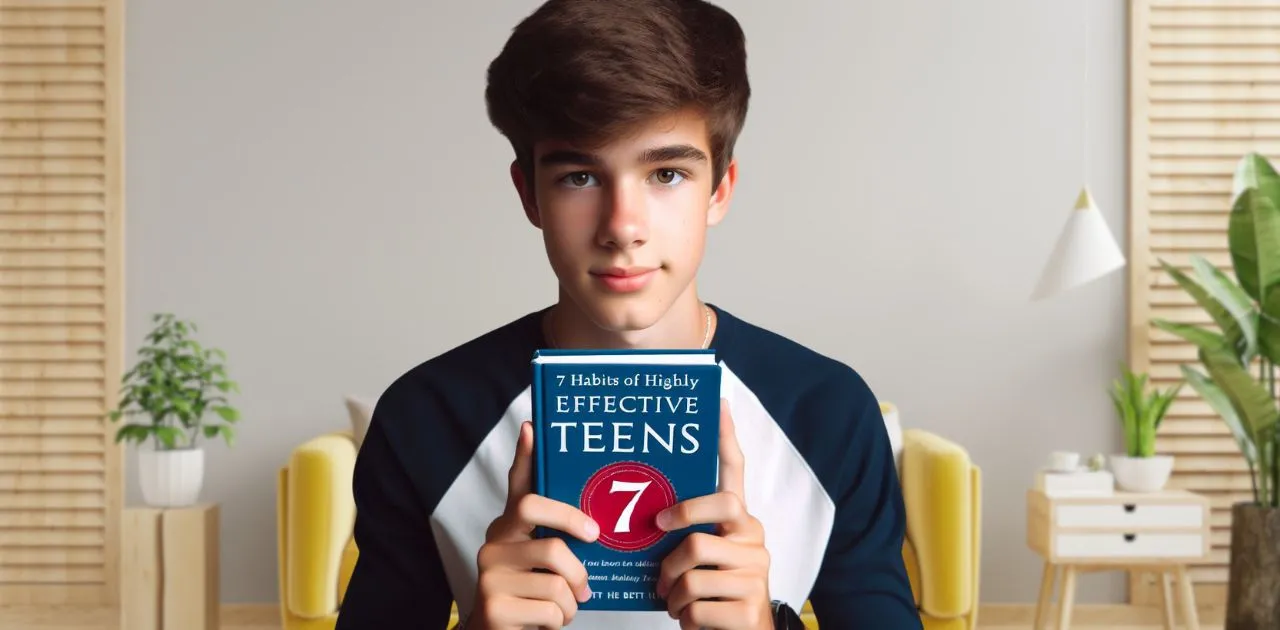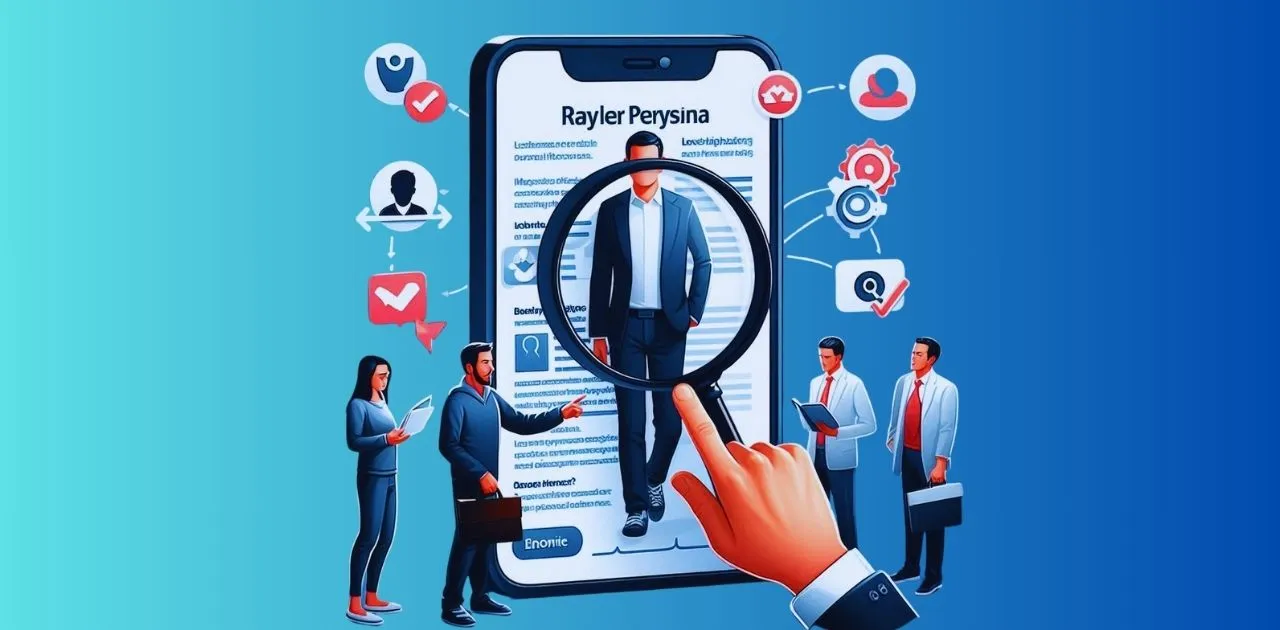Sean Covey’s 7 Habits of Highly Effective Teens is a life-changing book that provides an easy and comprehensive pathway for developing valuable habits.
You cannot find a book about habits as easy and important as this masterpiece. Its contents are exciting and, at the same time, helpful for personal development.
As the name suggests, this book highlights 7 effective habits for teens. One of the best lines describing habit precisely is when the writer asks a question.
Who am I? “Take me, train me, be firm with me, and I will place the world at your feet. Be easy with me, and I will destroy you. Who am I? I am a habit”.
Table of Contents
7 Habits of Highly Effective Teens: Review
Sean Covey discusses 7 effective habits for teens and their importance in four different parts of the book:

Part I: The Private Victory
The first two habits, “Be Proactive” and “Begin with the End in Mind,” set the stage for what Covey terms a “Private Victory,” emphasizing the importance of internal growth and self-mastery.
Habit 1: Be Proactive
Proactivity is the cornerstone of personal effectiveness. Covey illustrates that being proactive is about taking initiative and responsibility for one’s actions rather than reacting to external circumstances. The essence of proactivity is rooted in the concept of choice: individuals have the power to choose their responses based on values rather than emotions.
Covey delineated the key components of proactivity, which include self-awareness, imagination, conscience, and independent will. Self-awareness is one of the healthy habits for teens, allowing them to critically understand their thoughts and behaviors. This reflective ability differentiates humans from animals and enables proactive behavior.
Imagination is another crucial element. It empowers teens to envision possibilities beyond their current reality, fostering innovation and creative problem-solving. This forward-thinking mindset is essential for proactive individuals seeking to shape their future actively.
Conscience, or the moral compass, guides teens in discerning right from wrong. By aligning their actions with ethical principles, proactive teens ensure that their behavior is consistent with their values, leading to integrity and trustworthiness.
Independent will, the final component, underscores the capacity to make decisions and act autonomously. This autonomy is vital for teens as it reinforces the idea that they are the architects of their destinies. Proactive language, such as “I can” and “I will,” further reinforces this sense of empowerment and control.
Covey’s delineation of the circle of influence versus the circle of concern provides a practical framework for understanding proactivity. By focusing on the circle of influence—areas where one has control—teens can effectively manage their attitudes and behaviors, leading to positive outcomes.
Habit 2: Begin with the End in Mind
The second habit, “Begin with the End in Mind,” emphasizes goal setting and a clear vision for the future. Covey advocates for creating a personal mission statement (PMS), which serves as a personal constitution outlining one’s values, principles, and objectives.
A personal mission statement is a powerful tool for self-guidance. It is the quality of humans and the habits of successful musicians. It is the capacity to know about your thought processes. It provides a sense of direction and purpose, helping teens to stay focused on their long-term goals. Developing a PMS encourages introspection and clarity, leading to a deeper understanding of one’s core values and aspirations.
Identifying one’s center is another critical aspect of this habit. Covey explains that an intense center comprises security, guidance, wisdom, and power. Security pertains to self-esteem and identity, while guidance offers a sense of direction. Wisdom allows for a balanced perspective on life; power represents the energy and capacity to make decisions. Together, these elements create a robust framework for personal leadership.
Visualization and affirmation are also integral to this habit. Covey suggests that teens can reinforce their commitment to their mission by regularly visualizing their goals and affirming their capabilities. This mental rehearsal helps in embedding their objectives into their subconscious mind, making it easier to stay motivated and focused.
Finally, goal setting is a practical application of this habit. Covey encourages teens to break down their roles into specific domains and set concrete, actionable goals. By focusing on results rather than activities, teens can create a structured path toward their desired outcomes.
Part II: The Public Victory
In Part II of “7 Habits of Highly Effective Teens,” Sean Covey shifts the focus from personal to public victories, emphasizing the importance of time management, prioritization, and cultivating mutually beneficial relationships.
Habit 3: Put First Things First
Habit 3 is about effective self-management and prioritizing tasks that align with long-term goals and values. Covey’s time management matrix, divided into four quadrants, is a foundational tool. The time management matrix is given as follows:
| Urgent | Not urgent | |
| Important | Quadrant I | Quadrant II |
| Not Important | Quadrant III | Quadrant IV |
Highly effective teens stay out of quadrants III and IV because, urgent or not, they are not necessary.
- Those who spend time in the III and IV quadrants lead irresponsible lives.
- Quadrant II is the core of personal and time management. Its activities are not urgent but important. It deals with personal mission statements, building relationships, long-range planning, and forming exercise habits.
The quadrants categorize activities based on their urgency and importance, urging teens to focus on Quadrant II activities, which are essential but not urgent. This proactive approach encourages teens to engage in planning, goal-setting, and personal growth activities that contribute to long-term success.
Covey’s emphasis on saying “no” to tasks outside Quadrant II is particularly valuable. This ability to reject distractions and prioritize meaningful activities helps teens maintain focus and achieve their goals.
The principle-centered approach to time management fosters coherence, balance, and flexibility, ensuring that teens remain aligned with their mission and vision while managing their roles and responsibilities.
By mastering the art of prioritization and time management, teens can develop a disciplined approach to their daily lives. This habit enhances productivity and instills a sense of empowerment and control over one’s actions and outcomes.
Habit 4: Think Win-Win
Habit 4 introduces a paradigm shift in how teens approach relationships and interactions. Covey explains that the win-win mindset seeks mutually beneficial solutions in all human interactions. This habit is foundational for moving from independence to interdependence, highlighting the importance of collaboration and cooperation.
Covey identifies three essential character traits for a win-win mindset: integrity, maturity, and an abundance mentality. Integrity involves living according to one’s values and consistently aligning with them. Maturity balances courage and consideration, enabling teens to express their feelings and convictions while respecting others. An abundance mentality fosters the belief that there is enough success to go around, countering the scarcity mindset that can lead to competitive and adversarial interactions.
Building healthy relationship habits based on trust, accountability, and effective communication is crucial for win-win outcomes. Covey emphasizes the importance of clear agreements, which outline expectations, principles, and support systems and ensure that all parties are committed to the same goals.
Systems and processes that support a win-win mindset are vital for sustaining this habit. Covey suggests aligning systems with one’s mission statement and focusing on interests rather than positions to achieve mutually beneficial solutions.
This principled approach to problem-solving encourages teens to view challenges from multiple perspectives and explore innovative options for collaboration.
Part III: The Balance
In this part of the book, Stephen Covey’s Habits 5 and 6 provide invaluable insights into interpersonal effectiveness and teamwork. These habits are pivotal in transitioning from personal to public victory, emphasizing the significance of empathetic communication and creative collaboration.
Habit 5: Seek First to Understand, Then to Be Understood
This habit emphasizes the power of empathetic listening, a skill often undervalued yet crucial for meaningful communication. Covey rightly identifies that most people listen with the intent to reply rather than to understand.
This reactive approach can hinder effective communication, leading to misunderstandings and conflicts. Empathic listening, as described by Covey, involves genuinely focusing on the speaker’s perspective and emotions without the immediate urge to interject with one’s viewpoints.
This habit teaches teens the importance of patience and empathy in communication. By prioritizing understanding others first, teens can foster deeper connections and build trust. This approach also facilitates more transparent and effective expression of their own ideas, as they have already established a foundation of mutual respect and understanding.
Covey’s insights are particularly relevant in today’s fast-paced, digitally-driven world, where superficial interactions often replace meaningful conversations. Mastering this habit can significantly enhance a teen’s interpersonal relationships, both in personal and professional contexts.
Habit 6: Synergize
Synergy, as Covey describes, is the epitome of creative cooperation. The concept that “the whole is greater than the sum of its parts” is brilliantly illustrated through examples of teamwork and collaboration.
This habit encourages teens to value differences and leverage the unique strengths of each team member to achieve extraordinary results. Covey’s approach to synergy is not merely about compromise but creating innovative solutions superior to individual efforts.
Understanding and practicing synergy can be transformative for teens. In educational settings, it can lead to more dynamic and effective group projects. Similarly, it also promotes learners’ metacognition. In personal interactions, it promotes an open-minded and inclusive attitude.
However, achieving synergy has its challenges. It requires patience, open-mindedness, and a willingness to put aside ego for the greater good. Covey’s recognition of these challenges and his practical advice on overcoming them make this habit accessible and actionable for teens.
By learning to synergize, teens can experience the power of collective intelligence and creativity, leading to better decisions and more innovative outcomes.
Part IV: The Challenges along the Way
In the final part of “7 Habits of Highly Effective Teens,” Stephen Covey introduces the seventh habit, “Sharpen the Saw.”
Habit 7: Sharpen the Saw
This habit is about self-renewal and maintaining balance in four critical areas of life: physical, mental, emotional, and spiritual. Covey’s metaphor of sharpening a saw is simple yet profound—just as a saw needs regular sharpening to function effectively, we must take care of ourselves to maintain our effectiveness and well-being.
I. Physical Well-being
Covey emphasizes the importance of physical health by encouraging teens to eat nutritious and healthy foods, exercise regularly, and get healthy sleep. These practices are fundamental for maintaining energy levels and overall health. Physical well-being provides the foundation for productivity and resilience.
II. Mental Improvement
Mental improvement involves keeping the mind active and engaged. Covey suggests activities like reading, learning new skills, and challenging oneself with puzzles or intellectual pursuits. These activities stimulate the brain, fostering curiosity and continuous learning.
III. Emotional and Social Well-being
Emotional and social well-being are crucial for handling relationships and managing emotions. Covey highlights the importance of building strong connections, communicating effectively, and managing stress. Emotional health enables teens to navigate challenges more efficiently and maintain meaningful relationships.
IV. Spiritual Renewal
Spiritual renewal is about finding purpose and meaning in life. This can be achieved through various means, such as religion, nature, or artistic expression. Covey advises teens to take time for reflection, meditation, or connecting with something greater than themselves, which can bring peace and clarity.
Final Thoughts
The 7 Habits of Highly Effective Teens by Sean Covey is worth reading. It is a complete package for personal development and teaches the quality of leadership and effective communication in highly effective teens. After reading this book, I became the master of my time. It accelerated my quest for time and personal management. All the habits are arranged so that each paves the way for the next habit. You can also become a highly effective teen by reading this book. Keep an account of the main points and start developing your personality by following Sean Covey.




